Boris Johnson: After one year in power, how is the PM doing?
- Published
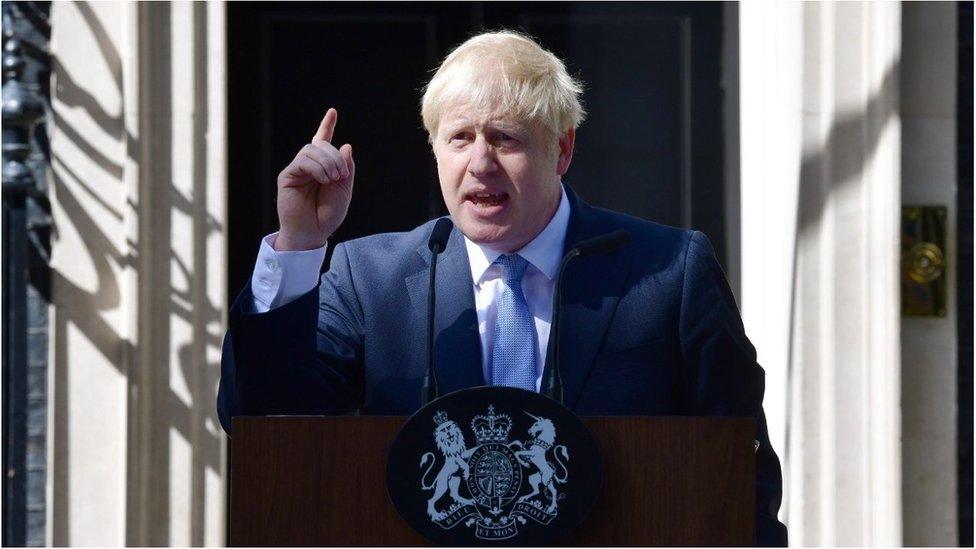
Boris Johnson has been in power for a year.
Standing outside 10 Downing Street on 24 July 2019 he said: "The time has come to act, to take decisions, to give strong leadership and to change this country for the better."
With the coronavirus pandemic, tens of thousands have died in the UK and many have lost jobs or businesses in the economic downturn.
Since the first case was confirmed in the UK at the end of January, the government has been dealing with an unprecedented crisis that has consumed an immense amount of effort.
But looking back to that first speech, which contained both short-term and long-term goals, how much progress has been made?
1. Brexit on 31 October 2019
"We are going to fulfil the repeated promises of parliament to the people and come out of the EU on 31 October. No ifs or buts and we will do a new deal, a better deal."
The UK did not leave the European Union on 31 October as the prime minister failed to get his renegotiated version of the Brexit withdrawal agreement through the House of Commons.
But he went on to win a large majority in December's general election and the UK left the EU at 23:00 on 31 January.
The UK is now in a transition period during which it continues to follow EU rules and regulations. It will leave the economic structures of the EU - the single market and the customs union - at the end of this year. Negotiations on a future trade agreement with the EU continue, but have yet to make significant progress.
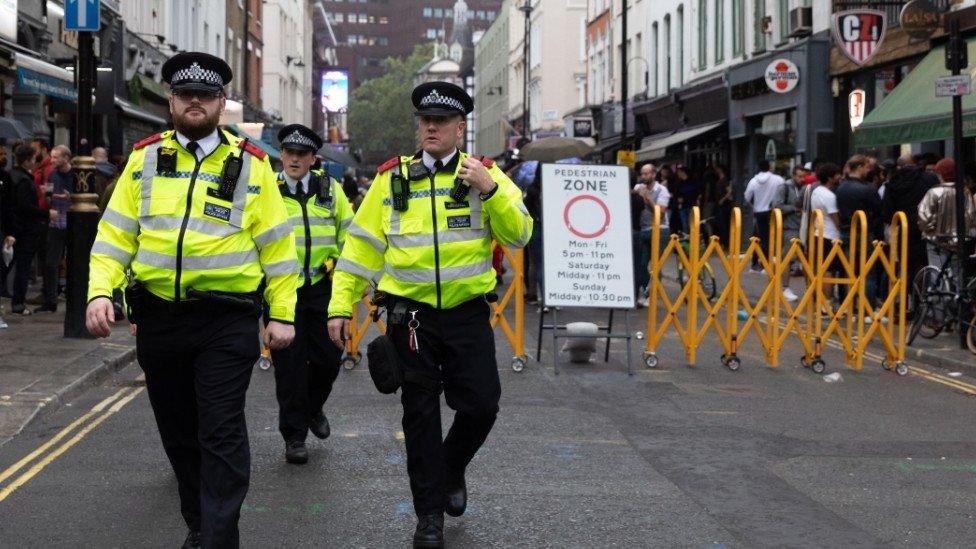
2. Another 20,000 police officers
"My job is to make your streets safer - and we are going to begin with another 20,000 police on the streets"
The government aims to reach its 20,000 target by March 2023.
And police forces in England and Wales have recruited 3,005 additional officers in the year to March 2020, according to the Home Office, external. There will be new figures out on Thursday.

In the same period, increases in police recorded crime have slowed down, but knife crime has hit a record high. The number of crimes being solved has hit a record low, with just 7% of crimes resulting in a charge or court summons.
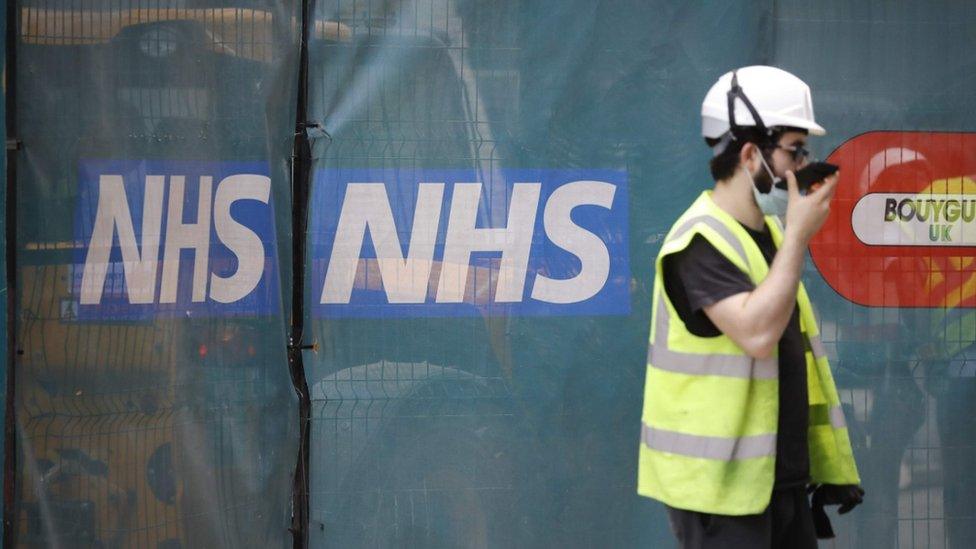
3. Hospital upgrades
"We start work this week with 20 new hospital upgrades"
The government announced £1.8bn for NHS hospitals in England, with £1bn immediately made available for new equipment and the 20 upgrades.
At the time, health think tank the Nuffield Trust said that the funding, would "only be a fraction of what it would cost to really upgrade 20 hospitals".
One year on from Mr Johnson's speech, the Department of Health and Social Care says work is due to begin soon on the first of the 20 upgrades.
The coronavirus outbreak has seen large sums of money poured into the NHS to deal with the crisis, and a rapid, temporary expansion of capacity.
A number of temporary Nightingale hospitals were to be used in the event of admissions with coronavirus increasing dramatically.
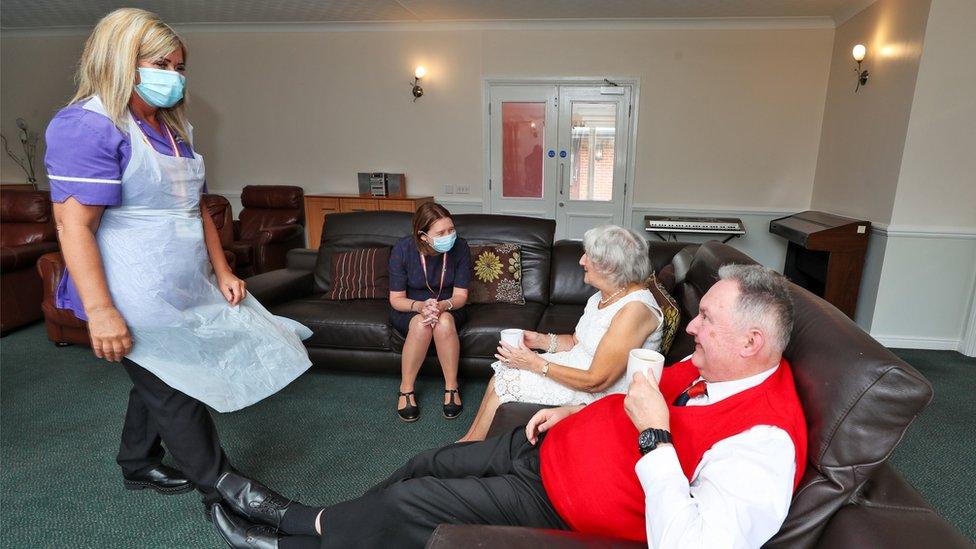
4. Social care plan
"I am announcing now - on the steps of Downing Street - that we will fix the crisis in social care once and for all with a clear plan we have prepared"
This plan has not been revealed yet.
In January, Mr Johnson said that "we will be bringing forward a plan this year but we'll get it done in this parliament [by 2024]".
On 8 March, Health Secretary Matt Hancock sent a letter to all MPs about their "proposed solutions" and "concerns about reforming the way that people pay for their care as part of the cross-party talks".
The coronavirus crisis spiked in the weeks after the offer of cross-party talks, highlighting the vulnerability of the care sector.
The talks are yet to begin.
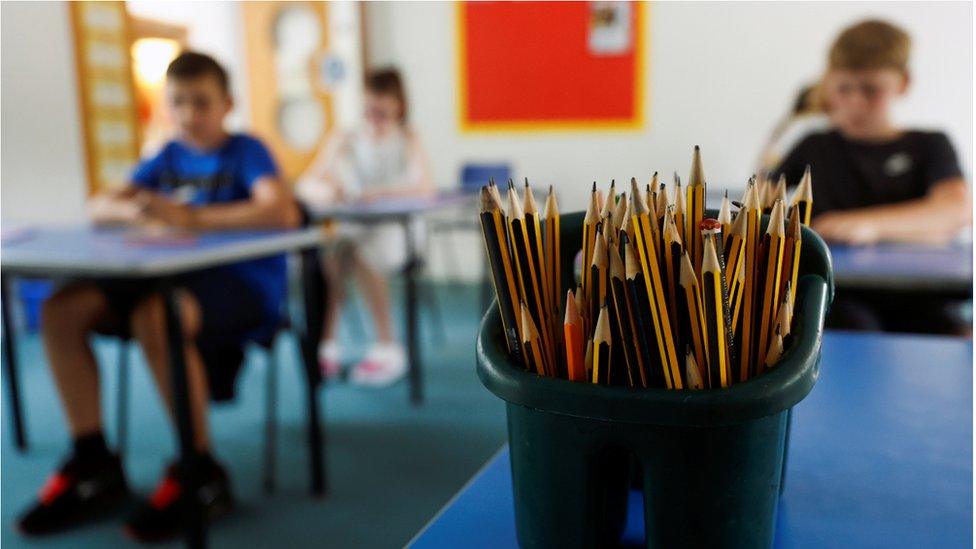
5. School funding
"We are going to level up per pupil funding in primary and secondary schools"
For 2020-21, the government increased the minimum per pupil spend in England to:
£5,000 for secondary pupils, up £200 from the previous year
£3,750 for primary pupils, up £250.
The government has also introduced rules meaning local authorities have to ensure each pupil receives, external this funding. Previously, it was up to local authorities to allocate the money to schools in their area.
Roughly 21% of primary schools and 37% of secondary schools have benefited from the increase because their per pupil spending was previously below this, according to the House of Commons Library, external.

This is described as "levelling up" because these schools' budgets will have been pushed closer to those with more funding. Many schools will have well above the minimum per pupil funding, for reasons such as being in a deprived area.
By 2022-23, schools in England will be receiving an extra £7.1bn a year. This will reverse spending cuts since 2010, according to the Institute for Fiscal Studies.
6. New roads and railways
"Fantastic new road and rail infrastructure..."
Mr Johnson also pledged to unite the country and ''level up'' through new transport links, and this has been a big focus during his first year in charge.
He has given the go-ahead for the controversial high-speed rail project HS2, which will run between London and the Midlands, and then on to Manchester and Leeds in a second phase. Supporters say it will create jobs and rebalance the UK economy as well as creating jobs.
The Spring Budget in March allocated £640bn for infrastructure investment, £100m of which was recently allocated to 29 road network projects to "get Britain moving".
In May, a £1.7bn Infrastructure Investment Fund was launched to ''make sure Britain is ready to bounce back from coronavirus''. This included money to upgrade the UK's roads and railways, but corresponded to sums announced in the Budget and other existing funding pots.

7. Full-fibre broadband
"...and full fibre broadband"
Boris Johnson promised full-fibre broadband - that means having a fibre-optic cable running into every home and business. By the party conference in September that had become "full-fibre, 5G and other gigabit-capable networks" by 2025, with a £5bn investment for reaching the most remote areas.
An earlier review, external reckoned the whole country could get full-fibre by 2033 with government funding of £3bn to £5bn, so £5bn to do it eight years sooner had been deemed optimistic by some commentators.
The latest update, external from the regulator Ofcom in May found that full-fibre "continues to improve at a rapid pace" and that 3.5 million homes in the UK, which is 12%, have it available to them. But there is still a long way to go for everyone to be connected in 2025.
Also, if the government is relying on 5G to provide gigabit-capable networks in remote areas, its decision to remove Huawei equipment from the 5G infrastructure will delay its rollout.
8. Wages and productivity
"We level up across Britain with higher wages, and a higher living wage, and higher productivity"
In his spring statement, Chancellor Rishi Sunak announced a rise in the National Living Wage from £8.21 to £8.72 an hour.
This week, the government also announced that almost 900,000 public sector workers, including doctors and teachers, would receive an above-inflation pay rise of up to 3.1%.
Wages and productivity have both been falling in recent months, although that is partly connected with the coronavirus outbreak. Under the furlough scheme, the government pays 80% of the employment costs of employees who are not working.
Coronavirus is also likely to be a problem for attempts to level up regional inequality. The Social Market Foundation warned that the economies of London and the South East were likely to bounce back more quickly than other regions.
The Conservative manifesto promised to address the country's poor productivity by investing in education, infrastructure and R&D. Since then the government has pledged £120m for eight Institutes of Technology and £7m for 11 maths schools and promised that R&D spending would rise by £22bn by 2025.
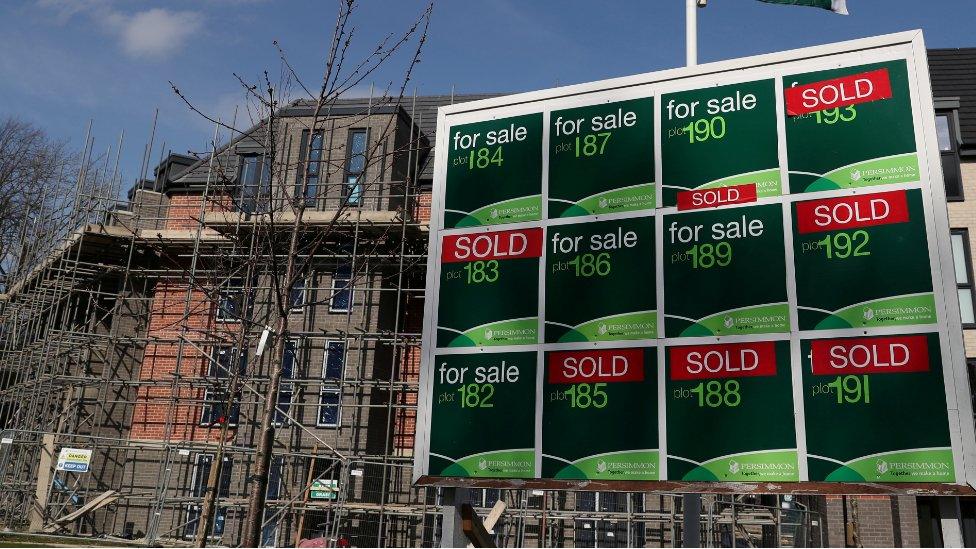
9. Housing
"We close the opportunity gap giving millions of young people the chance to own their own homes"
This year, the government has committed itself to adding £9.5bn to a scheme to build affordable housing, which was introduced by Theresa May in 2018.
As part of a recent speech on infrastructure, the prime minister also promised to cut regulations that stop developers converting commercial properties into housing. However, some have argued, external that the current planning regulations do not have a significant impact on the number of homes being built.
There has also been a temporary cut in stamp duty, which will not be payable on homes up to £500,000, although that will have less impact on first-time buyers, who already did not have to pay stamp duty on the first £300,000.
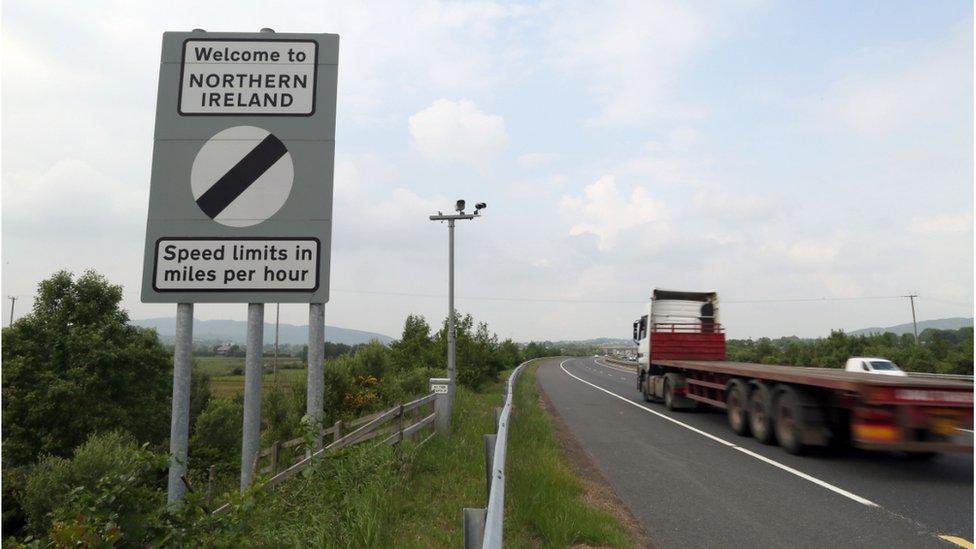
10. No checks at the Irish border
"I am convinced that we can do a deal without checks at the Irish border, because we refuse under any circumstances to have such checks"
Mr Johnson delivered on his promise to get rid of the backstop plan for the Irish border, while ensuring the land border between Northern Ireland and the Republic of Ireland remained as open as it was while both countries were in the EU.
But the prime minister's new plan means there will be checks and controls within the UK instead, on goods crossing from Great Britain to Northern Ireland. That lost him the support of his former allies in Northern Ireland, the Democratic Unionist Party.
Mr Johnson has repeatedly denied that there will be any kind of border down the Irish Sea, but his government has submitted applications to the EU to create border control posts at ports in Northern Ireland to check animals and food arriving in the EU single market.
Northern Ireland will stay in the single market for goods when the Brexit transition period ends.


